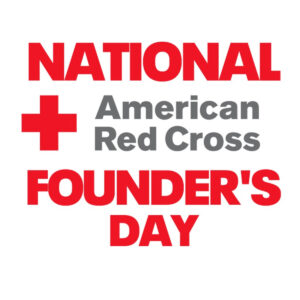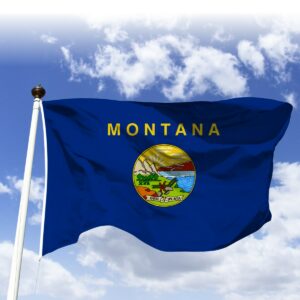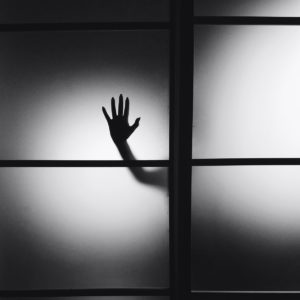National Anxiety Disorders Screening Day is observed on the first Wednesday in May. This year, it takes place on May 3. The day was first observed in 1993. Its significance is to raise awareness about the importance of people going for anxiety disorder screenings.
Anxiety screening is essential for one to find out whether they have anxiety disorders and learn how to treat or manage such conditions. Several online tests screen for anxiety, although it’s best to see a doctor for a more detailed examination. The doctor will perform a physical exam, and ask about your symptoms. They will also recommend a blood test, which helps determine whether another condition may be causing your symptoms.
History of National Anxiety Disorders Screening Day
Latin and Greek doctors and philosophers recognized anxiety as separate from other types of negative states and identified it as a medical disorder. Epicurean and Stoic philosophers in ancient times suggested techniques to reach an anxiety-free state of mind that largely resemble modern cognitive psychology.
Unfortunately, there was a long interval between classical antiquity and the late 19th century where anxiety was not classified as a separate illness. However, people kept reporting typical cases of anxiety disorders, albeit under different names.
In the 18th century, Boissier de Sauvages published a nosology that acknowledged panic attacks and generalized anxiety disorder as ‘panophobias.’ Later in the 19th century, the term ‘neurasthenia’ was coined to describe a medical condition with fatigue, headache, and irritability as symptoms. These anxiety symptoms were an essential component of such new disease constructs.
In India, people used numerous ayurvedic herbs for centuries in traditional medicine to calm the mind and positively enhance their mood. The most common ones were Brahmi, Gotu kola, and ashwagandha.
Before advancements in medicine, ancient treatments included using various herbs and balms (medieval times), hydropathy (subjecting the body to extreme temperatures), bathing in extremely cold streams and rivers, health spas, and blood-letting using leeches. However as psychoanalysis gained traction and with the rise of Freud, people started embracing therapy as a solution to anxiety disorders.
Even though anxiety disorders have been officially recognized only recently, they have existed all throughout our history. Numerous influential people in history have reported experiencing anxiety disorders and panic attacks, like Johnny Depp, Adele, Selena Gomez, Abraham Lincoln, and Winston Churchill.
National Anxiety Disorders Screening Day timeline
Burton publishes “The Anatomy of Melancholy,” an encyclopedic review of the writings on anxiety from Antiquity up to the 17th century.
Anxiety becomes a key component of several new diagnostic categories, from neurasthenia to neuroses.
Thorazine is introduced in Fulton Hospital, Missouri, as a psychotropic drug for calming anxiety, unruly behavior, agitation, and confusion.
Anxiety disorders are officially recognized by the American Psychiatric Association.
National Anxiety Disorders Screening Day FAQs
Can children experience anxiety?
Yes, but since they are still developing their verbal skills, they don’t know how to say, “I’m experiencing anxiety” or “I’m feeling worried.” Anxiety in children shows up as headaches, stomach aches, or behavioral issues like restlessness, temper tantrums, avoidance, ad emotional meltdowns.
Is anxiety genetic?
Studies show that anxiety disorders seem to run in families. That’s why some people survive traumatic events and come through seemingly unscathed, while others develop anxiety disorders like panic disorder, PT.S.D., and generalized anxiety disorder.
What are the treatment options for anxiety disorders?
The most common methods of treatment for anxiety disorders are cognitive behavioral therapy, medication, or a combination of the two, and exposure therapy. Admission to a hospital is not mandatory for all cases.
How to Observe National Anxiety Disorders Screening Day
Read books about anxiety disorders
There are numerous books with practical tips on positive ways of managing anxiety and related disorders. Some examples include” The Anxiety and Phobia Workbook (4th Edition)” by E.J. Bourne and “Mind over Mood” by D. Greenberger and C. Pedesky. These resources can help you and your loved ones achieve mental wellness.
Practice relaxation techniques
Relaxation techniques such as breathing exercises are fantastic for reducing stress and managing anxiety. Take a few moments on this holiday to practice some of them. You could also opt for other treatments, such as aromatherapy, massage, mindfulness meditation, shiatsu, and tai chi.
Have conversations about anxiety and wellness
As much as mental wellness is widely talked about today, it’s still a subject with a stigma attached to it. Talking with your friends and family about anxiety disorders helps to demystify the topic.
5 Interesting Facts About Anxiety
Anxiety can be a good thing
Mild anxiety can keep you safe by helping you stay alert to your surroundings.
It’s a normal response to stressful events
Most people view anxiety negatively but it’s only a problem when we react to it in ways that are counterproductive to a rich and meaningful life.
Exercise helps decrease symptoms
Even a 30-minute run or a quick walk around the block are excellent and quick mood boosters.
Anxiety can cause memory problems
People who suffer from anxiety often struggle with staying in the present moment, which often makes them forgetful.
Anxiety comes with physical symptoms
It has serious effects on one’s physical state by causing nausea, weakness, shortness of breath, hot flashes, rapid heart rate, or dizziness.
Why National Anxiety Disorders Screening Day is Important
It raises awareness
The world still needs to have more conversations about mental wellness. National Anxiety Disorders Screening Day is a perfect driver for this.
We learn about advances in treatment
Anxiety disorders are challenging to handle. New treatment options go a long way in improving the quality of life of those dealing with anxiety.
It shows love to those with anxiety
Since mental health challenges are invisible, they are often dismissed as not important. This holiday gives a chance to extend compassion to people suffering from anxiety.
National Anxiety Disorders Screening Day dates
| Year | Date | Day |
|---|---|---|
| 2022 | May 4 | Wednesday |
| 2023 | May 3 | Wednesday |
| 2024 | May 1 | Wednesday |
| 2025 | May 7 | Wednesday |
| 2026 | May 6 | Wednesday |






















































